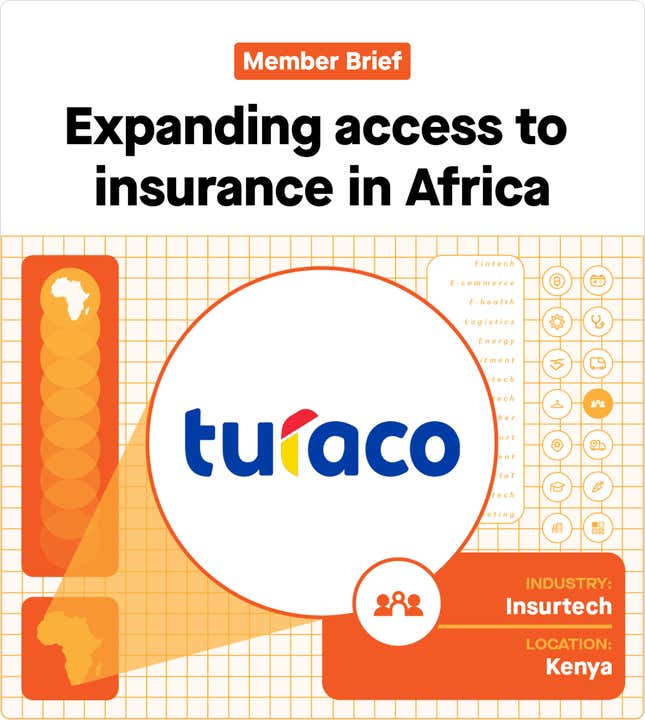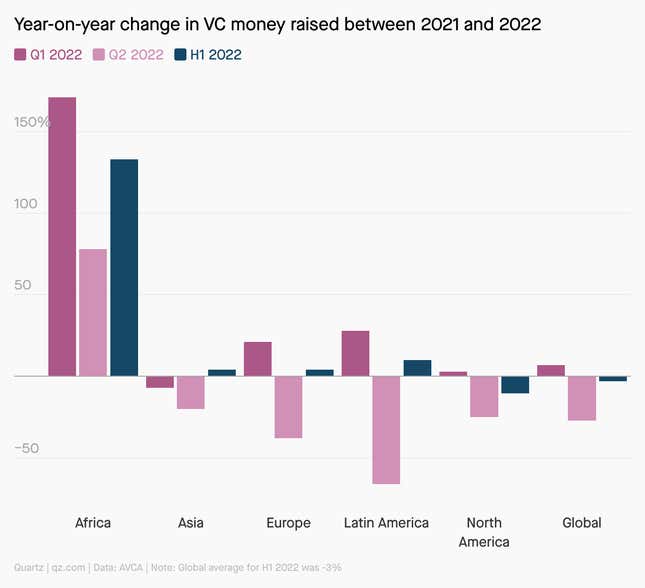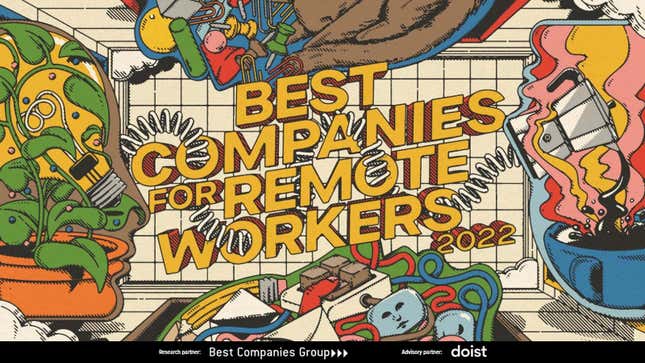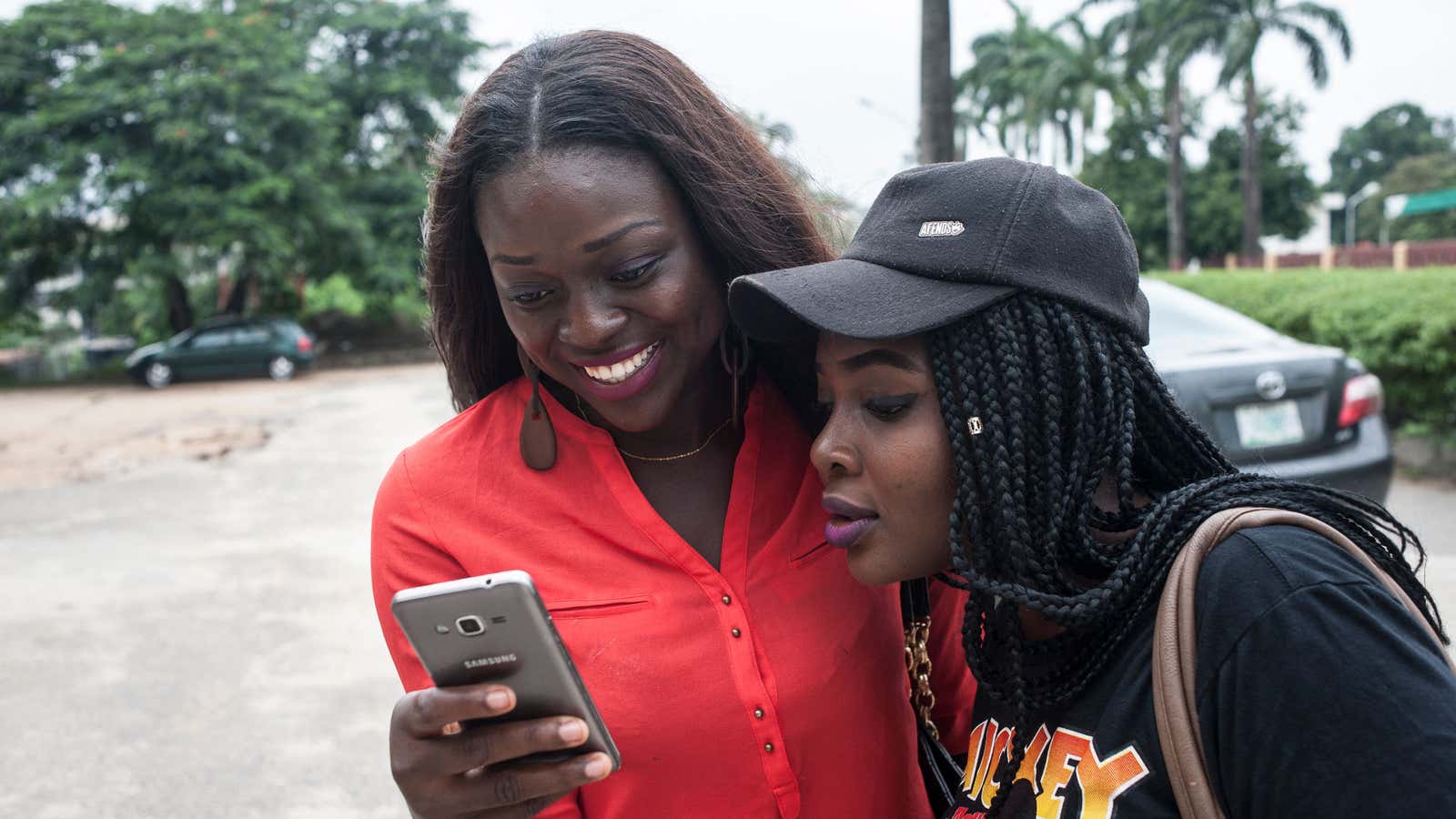Hi Quartz Africa readers,
Technology has obscured the line between the physical and virtual worlds with original tweets, historical photos, monuments, art, architecture plans, drawings, land, cars, audio music, videos, avatars becoming available as non-fungible tokens (NFTs). NFTs are a way of tracking ownership of a unique digital asset, and one company is taking it to a new level.
Canada-based mining firm Madison Metals, which plans to mine uranium in Namibia, announced this week that it had secured an undisclosed amount of funds to sell its minerals in the form of NFTs. The new digital project is the world’s first ever attempt to place uranium-backed NFTs to online marketplaces—many were understandably confused.
Madison Metals has yet to start the physical mining of uranium in Namibia, the world’s second largest producer of the metal. That work is scheduled to happen at the same time as with virtual mining on Oct. 15.
Madison is working with blockchain firm Lux Partners to supply up to 20 million pounds of U308 uranium oxide, and just like the sale of other digital collectibles, it is set to provide an additional revenue stream to the company. Madison hopes to use revenue from selling virtual uranium tokens and royalties from NFT trading fees to keep drilling and advance its uranium projects towards real production, and even start purchasing uranium from other miners.
The project is unique because unlike other minerals, uranium is not sold on open markets, given that it is the fuel that powers nuclear plants. Placing it in an NFT marketplace opens it up to more transparency, but also raises a very futuristic question: What determines the value of digital assets?
—Faustine Ngila, east Africa correspondent
What to watch for in the Quartz Africa member brief

15 million: People in Africa pushed below the poverty line every year by out-of-pocket health care expenditures
2.78%: The insurance penetration rate in Africa in 2019
$68 billion: The estimated value of Africa’s insurance market, in terms of gross written premiums (GWP)
70%: South Africa’s share of total insurance premiums in Africa
91%: The share of the top 10 countries by total gross written premiums in Africa
35.1%: The proportion of Sub-Saharan Africa living on under $2.15 a day
Learn more about Turaco, a Kenya-based insurtech startup, in this past week’s edition of the Quartz Africa Member Brief. To get the Member Brief directly in your inbox (and save 40%), become a member today!
Stories this week
Google taps into the African spirit of ‘ubuntu.’ The company’s $1 billion investment aims to unite the continent and make it accessible as a single market. What could go wrong? Faustine Ngila highlights the challenges ahead.
Africa is betting big on open banking. Progress in sharing banking application programming interfaces (APIs) aimed at boosting financial inclusion is starting to change the continent’s banking landscape. Faustine Ngila examines the 11 countries pioneering the space.
Africa wants $1.3 trillion in climate financing from the west. Faustine Ngila attended a pre-COP27 conference in Rwanda where climate lobbyists mounted pressure on western countries to fork out over ten times the $100 billion climate finance pledge agreed in 2009, which they didn’t honor.
Internet providers succumb to the cost of living crisis. Two of Nigeria’s top mobile internet service providers have raised their data plans’ prices after holding steady for years, Alexander Onukwue reports.
Charting Africa’s venture capital record semester
The amount of venture capital investment into African startups in 2022 could beat last year’s record of $5 billion, according to a report by the continent’s top group of private investors. Across the world, startups raised considerably less venture capital money in the second quarter of this year than the same period in 2021, Africa being the only exception.
Between January and June, no other region even came close to matching the continent’s funding growth. Should the half-year growth rate persist till December, 2022 will be a new record year for the amount of venture capital investment raised by African startups. Alexander Onukwue has the details.

Dealmaker
Algebra Ventures, an Egyptian investment firm, raised $100 million for a fund from which it intends to invest in African and Middle Eastern startups. It is the firm’s second fund, following up on a $54 million fund that it invested in 21 startups. Some of the investors in the fund are development institutions like the International Finance Corporation, and FMO (the Dutch development bank) which made $15 million and $10 million commitments, respectively.
Spleet, a Nigerian proptech company, raised $2.6 million in a round led by MaC Venture Capital, an Los Angeles–based firm. Other investors in the company, whose apartments go for between $200 and $1,000 monthly in Lagos, include Noemis Ventures, Plug and Play Ventures, Assembly Funds, Ajim Capital, Francis Fund, MetaProp VC, and HoaQ Fund.
Quartz Gems
Quartz’s Best Companies for Remote Workers

What has at least 250 employees, good pay and benefits, and a knack for nurturing its workplace culture even when the staff is spread out? Our bet’s on any of the 20 companies that made Quartz’s 2022 global list of the best large companies for remote workers.
This year’s No. 1 is digital marketing agency 3Q/DEPT, which is fully remote—but some of the companies we recognized have a mix of WFHers and officegoers. Explore the full ranking, which also includes a list of the best small- and medium-size companies for remote workers.
And while you’re at it, if you have any other questions about the changing workplace—be it the productivity of a four-day week, office redesign, or giving feedback—check out our new podcast, Work Reconsidered, available from Oct. 6, that’ll tackle all these topics and more. Listen to the trailer and subscribe wherever you get your podcasts!
🎧 Google | Spotify | Megaphone | Stitcher
Other things we liked
Museveni’s son tweeted about capturing Nairobi. Daily Monitor’s Andrew Bagala and Stephen Otage explore the altercations between the Ugandan president and opposition leaders after Gen. Muhoozi Kainerugaba scripted a series of inflammatory tweets. Uganda’s opposition want him jailed.
Nigerian women and children drowned while escaping gang violence. For the BBC, Ishaq Khalid reports that 18 people in the north-western Zamfara state died while trying to escape an attack by village gunmen, who shot at their boats.
Lesotho voters want a leader who can tackle crime and unemployment. For the AP, Herbert Moyo explains that the prime minister elected in the Oct. 8 polls must deal with Lesotho’s two biggest problems—high murder rates and an acute shortage of jobs.
A British couple was murdered and bodies thrown to crocodiles. For the Evening Standard, Jamie Pyatt covers the trial of the three people accused of murdering botanists Rodney Saunders and his wife Rachel, whose bodies were found in a river in South Africa a few days after they were interviewed in a BBC documentary in 2018.
ICYMI
The Obama Foundation Global Leaders Program is open. If you are aged between 24 and 45 apply for the 2023 edition of this six-month virtual training program and become part of the world’s next generation of leaders. (Oct. 25)
Study in Paris. Apply for the French government’s Eiffel Excellence Scholarship program for your masters (under 25) or PhD (under 30). Masters students will be offered a €1,181 monthly allowance while doctorate students will be given a monthly stipend of €1,700. (Jan. 10, 2023)
🎵 This brief was produced while listening to ‘Makhelaw Magalou’ by Manal (Morocco)
This week’s brief took you to 🇰🇪, 🇳🇬, 🇷🇼, 🇪🇬, 🇱🇸, 🇲🇦 and 🇺🇬
Our best wishes for a productive and ideas-filled week ahead. Please send any news, comments, suggestions, ideas, uranium-backed NFTs, and climate trillions to [email protected]. You can follow us on Twitter at @qzafrica for updates throughout the day.
If you received this email from a friend or colleague, you can sign up here to receive the Quartz Africa Weekly Brief in your inbox every week. You can also follow Quartz Africa on Facebook.
